Paraplegic Dog Drags Herself for Miles to Get Help from Elephant Researchers
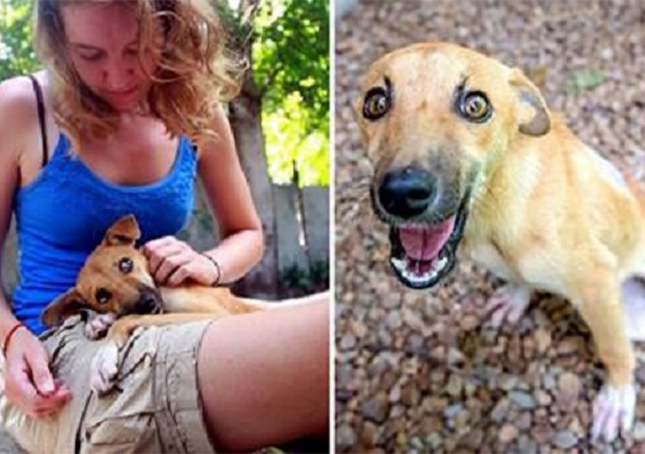
Team members at a remote elephant research camp in Botswana are used to seeing their share of injured animals, but were shocked to see a small dog dragging herself towards them one day.
Poppy must have sensed that these people could help, because now she is loved and getting the medical treatment she’s needed.
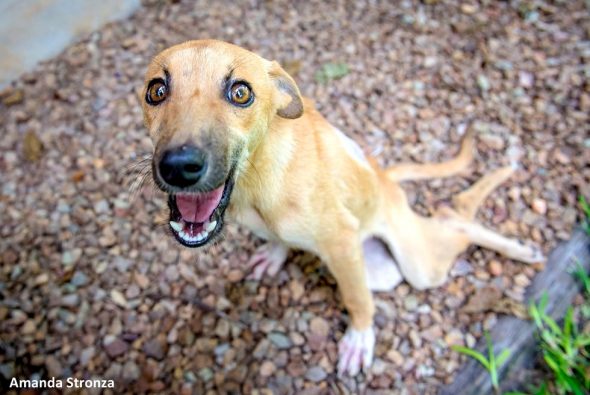
The Okavango Delta is home to nearly a thousand species of animals, including warthogs, baboons, hippopotami, rhinoceroses, zebras, wildebeests, elephants, hyenas, crocodiles, cheetahs, lions, and wild dogs.
But it was a domesticated dog who would soon be making a home of the camp.
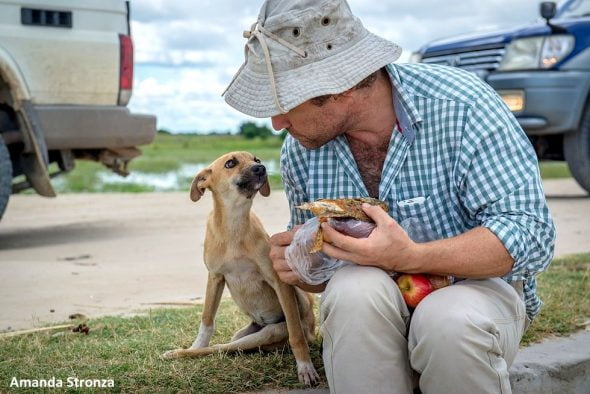
“She came crawling — literally crawling, because her back legs were completely immobilized — into our research camp,” Suzanne Vogel told The Dodo. “She was unable to walk, but full of love and seeking help.”
The team took Poppy under their wing, amazed that she had traveled so far to reach them and had survived the journey.
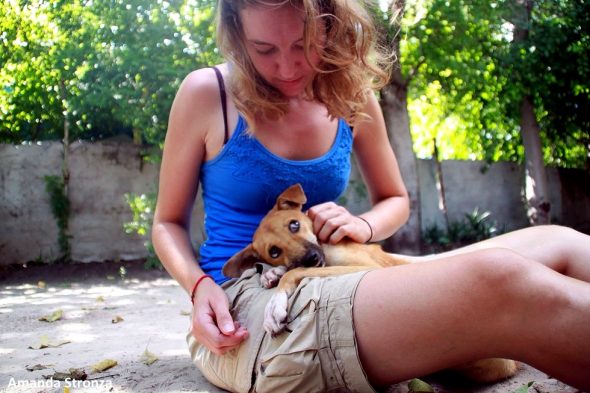
“The camp is in a remote region, filled with elephants, but also lions, hyenas, and other predators,” Vogel said. “Poppy had somehow made it to us, emaciated and soaking wet from the rain.”
Better the rain than the scorching, arid heat, as the camp is just north of the Kalahari Desert. The researchers monitored Poppy for a few days, and as soon as he could, Graham McCulloch made the right-hour drive with her to a veterinarian.
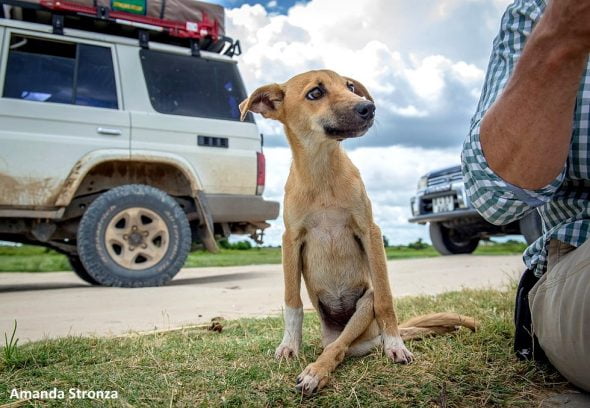
The vet determined that she had sustained her injury when she was a puppy around seven months old, possibly from being trampled by a person or large animal.
She needed corrective surgery, so team member Amanda Stronza set up a GoFundMe page to raise the funds to be able to do so.
“[The vet] said the chances were slim she could make it through the surgery or recovery afterward,” Stronza explained. “But she had so much life in her, and I knew we needed to honor her will to live and the hard fight she had already fought to find us and stay alive. I couldn’t agree to euthanize her.”
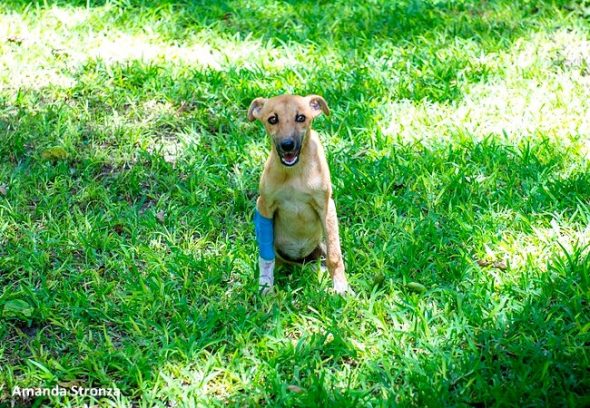
So the vets agreed to give her anti-inflammatory medication, and with that and some proper food and water, Poppy got stronger.
She was even able to put some weight on her atrophied hind legs. Every day she showed her rescuers just how special she was.
“Her eyes pulled us in immediately,” Stronza said. “They are huge, imploring, and sparkling with life. She bursts with the sweetest spirit, and we could see that clearly, despite the desperate condition she was in.”
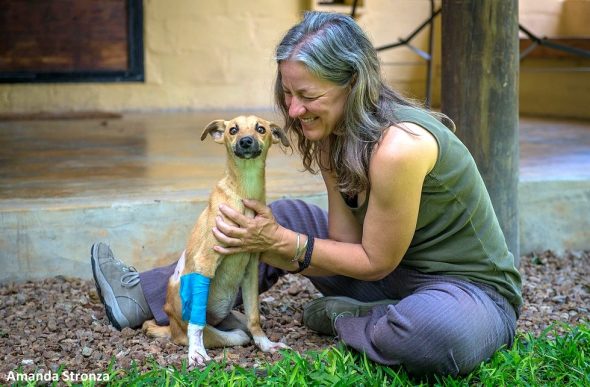
Poppy will stay with the research team – her temporary family – for at least the next month until they can decide what course to take from there – surgery, a more permanent home, etc.
Many people have already expressed an interest in adopting her.
“She already has so many people all over the world who love her from a distance and are checking on her progress daily and are eager to see a happy outcome, namely adoption into a loving family,” Stronza said.
“She will regain her ability to walk, or she will gain wheels to help her around. I think she has a bright future!”
